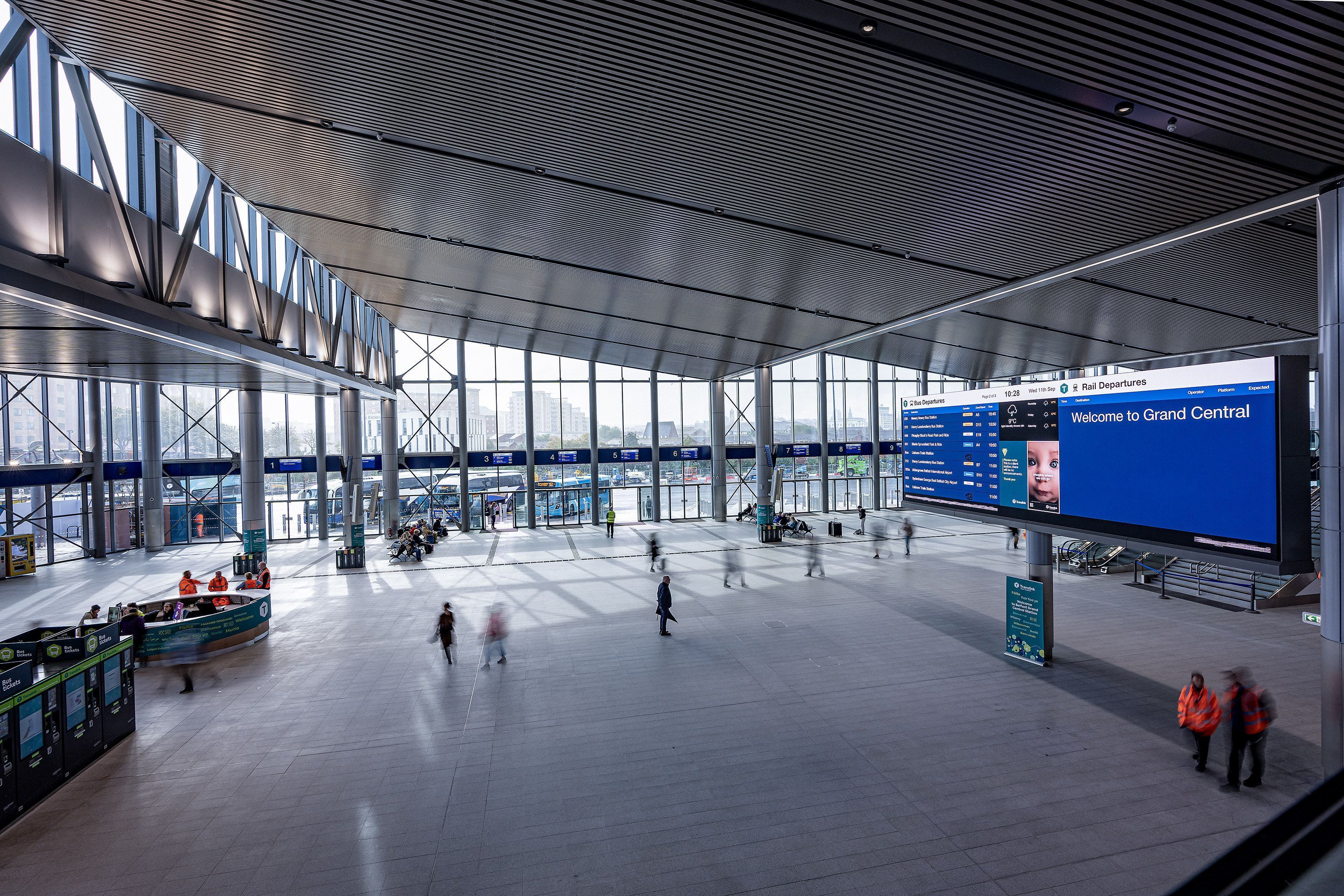GUIDANCE from the North’s first Irish Language Commissioner could help resolve the dispute over Irish language signage at the new Grand Central Station in Belfast.
High Court judge Mr Justice McAlinden indicated on Thursday that the commissioner should be consulted in a bid to defuse the argument over dual language signage at the £340million transport hub which opened last September with English-only signs.
Justice McAlinden was speaking as he put back a legal challenge to Infrastructure Minister Liz Kimmins’ decision last March to erect Irish signage at the new bus and rail station. Loyalist activist Jamie Bryson is seeking a judicial review of the Minister’s decision. DUP Communities Minister Gordon Lyons has previously been granted participation status after arguing the decision taken by Sinn Féin Infrastructure Minister Kimmins was controversial and cut across his own departmental responsibilities.
The appointment of the North’s first Irish language Commissioner is expected in the coming weeks.
Irish language rights group Conradh na Gaeilge have applied for leave to intervene in the judicial review in support of dual-language signage at Grand Central Station, having sought and received consent from the Minister for Infrastructure to do so.
Today at the High Court, Justice McAlinden did not take a decision on the proposed intervention by Conradh na Gaeilge, instead he requested the Ministers involved to consider the case further, and proposed that the input and expertise from the soon-to-be appointed Irish Language Commissioner be sought in relation to the decision to erect dual-language signage at Grand Central Station.
Speaking outside the court, President of Conradh na Gaeilge, Ciarán Mac Giolla Bhéin, welcomed the court's direction.
“We believe Justice McAlinden’s proposal to seek the input and expertise of the newly appointed Irish Language Commissioner to be sensible and prudent," he said. "We would anticipate that the Irish Language Commissioner, who under the legislation will develop ‘best practice standards’, will come to the conclusion that dual-language signage in shared spaces is a best practice model enjoyed and enshrined in other countries with similar circumstances, ultimately supporting the Minister’s original position."
Niall Murphy from KRW Law, acting on behalf of Conradh na Gaeilge, said: “Our application to intervene in this case on behalf of Conradh na Gaeilge, was to support the decision to erect dual-language signage in Grand Central Station, and to assist the court’s comprehension of what we consider to be a positive duty on the Department under various international treaties.
"The decision sits well within the letter and spirit of the Good Friday Agreement, calling for 'resolute action to promote the language' and to 'facilitate and encourage the use of Irish in speech and writing in public life'. We welcome the decision by the Court to seek the informed opinion of the Irish Language Commissioner, which in time, will likely make this application redundant.”





